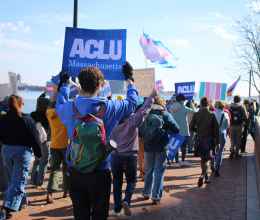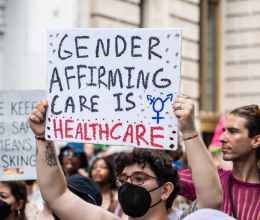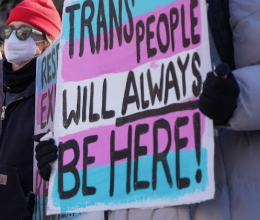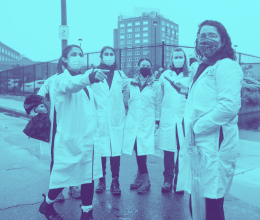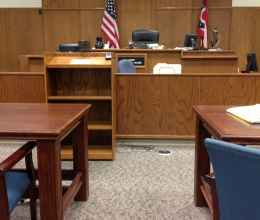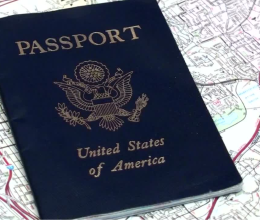
Last night, in between Governor Charlie Baker’s latest public prevarication on transgender rights and the subsequent tidal wave of boos that caused him to leave the stage, an interesting thing happened.
Nearly 20 minutes into Baker’s speech at an LGBT networking event hosted by Boston Spirit Magazine, he finally turned to the subject on everyone’s mind – the pending legislation on Beacon Hill to protect transgender people from discrimination in public places. The audience hoped beyond hope that the Governor would finally say he’d sign the damn thing . . . and he disappointed all of us, big time.
Instead of committing to equality, he maddeningly repeated what he’s said all along -- that no one should be discriminated against and he will listen to everyone if and when the legislation gets to his desk. Cue the outrage.
But here’s the interesting part… When the audience starts to voice their frustration and disappointment, Baker abruptly pivots to talking about, of all things, the opioid crisis.
"Let me just say one other thing… I didn’t run for governor to work on the opioid issue. The opioid issue came to me from powerful conversations I had with people as I was campaigning."
At first it almost seemed as if he was ignoring the outburst from the crowd and simply looking for safe talking point territory, but there may have been something else – and possibly something important – going on. Baker continued…
"The most powerful voices in this conversation have been the families and the individuals who have reached out to people in the administration, to my office, and in conversations with me. Their stories, and the bravery that comes with them, are compelling, it’s affecting, it’s real, and it’s an incredibly important part of understanding. And my recommendation to you is that you continue to have those conversations…"
“The most powerful voices in this conversation…” With that phrase, is he referring to the conversation about opioids, or about transgender rights? Might he have been saying that, despite his persistent public fence-sitting, he’s actually been moved by the voices of transgender people and their families? That those voices are “compelling…affecting…real”?
To be honest, it’s not clear. Baker has certainly talked before about the impact of hearing from people throughout the Commonwealth about their struggles with opioid addiction, and he could simply have been repeating that refrain. But when he recommends to the audience that they “continue to have those conversations,” it suggests that the preceding lines were about how hearing from transgender individuals and their families has been powerful to him.
In that case, it’s possible he was actually saying something very relevant, and even revelatory.
Our stories are powerful. We live them. We know. And we don’t need Governor Baker to tell us that.
But I’d like to believe that after years and years of telling our stories, they really are making a difference, even in the corner office.
We can’t read too much between the lines. There’s no way to sugarcoat or excuse the fact that Governor Baker continues to publicly duck and dodge on this critical and urgent issue of equality, or that he walked off the stage last night and left a room full of anger and heartbreak in his wake.
But let’s take him at his word that our stories matter to him. That we should keep telling them, and we can expect them to have an impact.
Governor Baker needs to sign this bill. We need the relief of knowing that the law fully protects us as we go about our daily lives.
Let’s hope that at the end of the day, our Governor hears our stories, recognizes our common humanity, and does the right thing.
Until then, keep the stories coming.
Aaron Wolfson is the Media Relations Specialist at the ACLU of Massachusetts.
